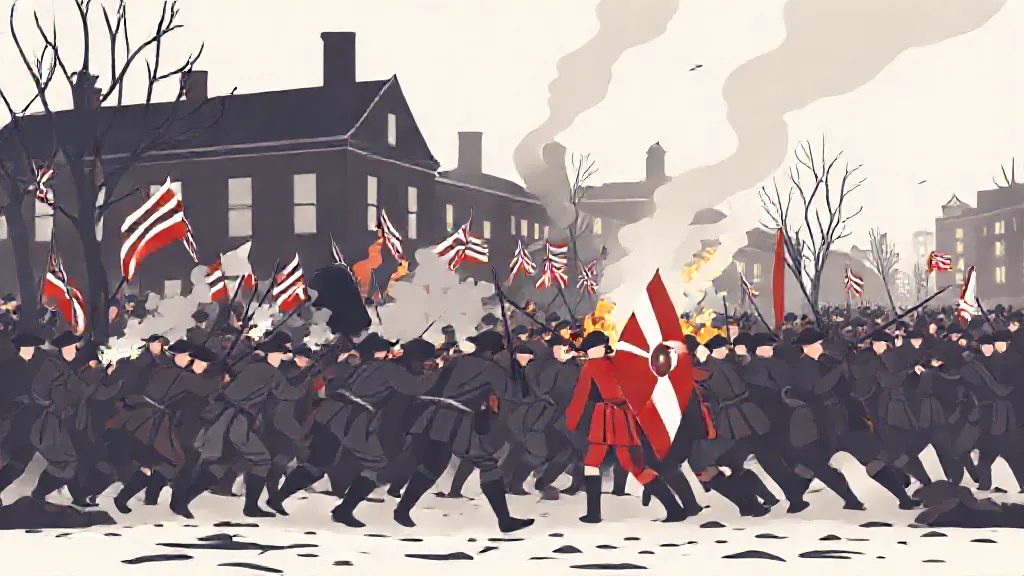The Boston Massacre, which occurred on March 5, 1770, stands as a pivotal moment in American history, serving as a catalyst for the revolutionary sentiments that ultimately led to the American Revolution. This tragic event, where British soldiers killed five colonists, not only heightened tensions between Britain and its American colonies but also galvanized public opinion against British rule. Understanding the Boston Massacre requires a deep dive into the socio-political climate of the time, the events leading up to the confrontation, and the aftermath that shaped the course of American history.
The Prelude to the Boston Massacre
In the years leading up to the Boston Massacre, the American colonies were rife with discontent towards British governance. Following the French and Indian War, Britain sought to recoup its war debts by imposing a series of taxes on the colonies, including the Stamp Act of 1765 and the Townshend Acts of 1767. These measures were met with widespread resistance, leading to protests and boycotts.
The presence of British troops in Boston, ostensibly to maintain order, only exacerbated tensions. The colonists viewed these soldiers as an occupying force, leading to a volatile atmosphere in the city.
The Night of the Incident
The night of the Boston Massacre began with a confrontation between a British soldier and a group of colonists who were taunting him.
The situation escalated as more colonists gathered, and the soldiers, feeling threatened, called for reinforcements. Amid the chaos, a shot was fired—whether it was from a soldier or a colonist remains debated. The soldiers, in a moment of panic, opened fire into the crowd, resulting in the deaths of five men, including Crispus Attucks, a man of African and Native American descent, who is often regarded as the first martyr of the American Revolution.
The Aftermath and Propaganda
The aftermath of the Boston Massacre was marked by outrage and a surge of anti-British sentiment. Paul Revere and other patriots seized upon the incident, using it as propaganda to rally support for the colonial cause. Revere’s famous engraving of the event depicted British soldiers firing into a peaceful crowd, a powerful image that stirred emotions and solidified public opinion against the British.
This portrayal played a crucial role in framing the narrative of the Massacre as a brutal act of oppression.
Legal Proceedings and Public Reaction
The legal proceedings that followed the Massacre further highlighted the divide between the colonists and British authorities. The soldiers involved were tried for murder, and John Adams, a future president, defended them, arguing that they acted in self-defense.
The acquittal of most soldiers did little to quell the anger of the colonists, who saw the trial as yet another example of British injustice. This legal battle underscored the complexities of colonial loyalty and the growing desire for independence.
The Role of the Boston Massacre in American Identity
The Boston Massacre has become a symbol of the struggle for American liberty and the fight against tyranny.
It represented the escalating conflict between the colonies and Britain, serving as a rallying point for those advocating for independence. The event is often commemorated in American history as a reminder of the sacrifices made for liberty and the importance of standing against oppression. It played a significant role in the formation of a collective American identity, uniting disparate colonies under a common cause.
Commemoration and Legacy
Today, the Boston Massacre is commemorated at the site of the incident, with a memorial and annual events that honor the victims. It serves as a historical lesson about the dangers of unchecked authority and the importance of civil rights. The Massacre is also a topic of study in schools, emphasizing the need to understand the complexities of history and the factors that lead to social unrest.
The legacy of the Boston Massacre continues to resonate, reminding us of the fragility of democracy and the ongoing struggle for justice.
Conclusion: Understanding Its Significance
In conclusion, the Boston Massacre is a key event in history not only for its immediate impact on colonial-British relations but also for its lasting influence on the American revolutionary movement. It encapsulates the struggle for freedom and the quest for justice, themes that are as relevant today as they were in the 18th century.
By studying the Boston Massacre, we gain insight into the roots of American democracy and the importance of civic engagement in shaping our society.
